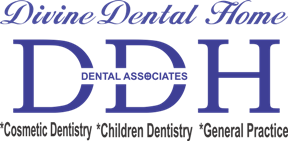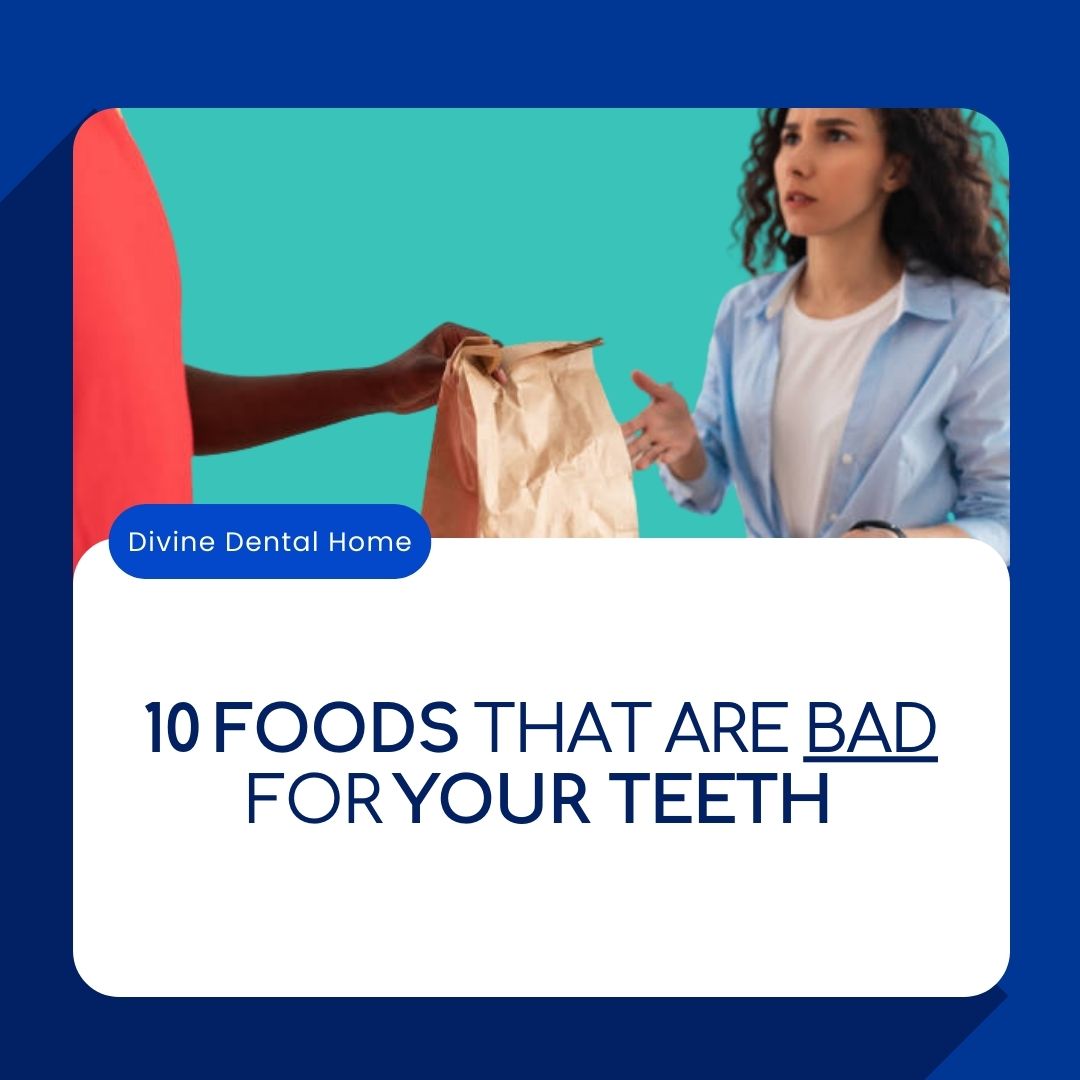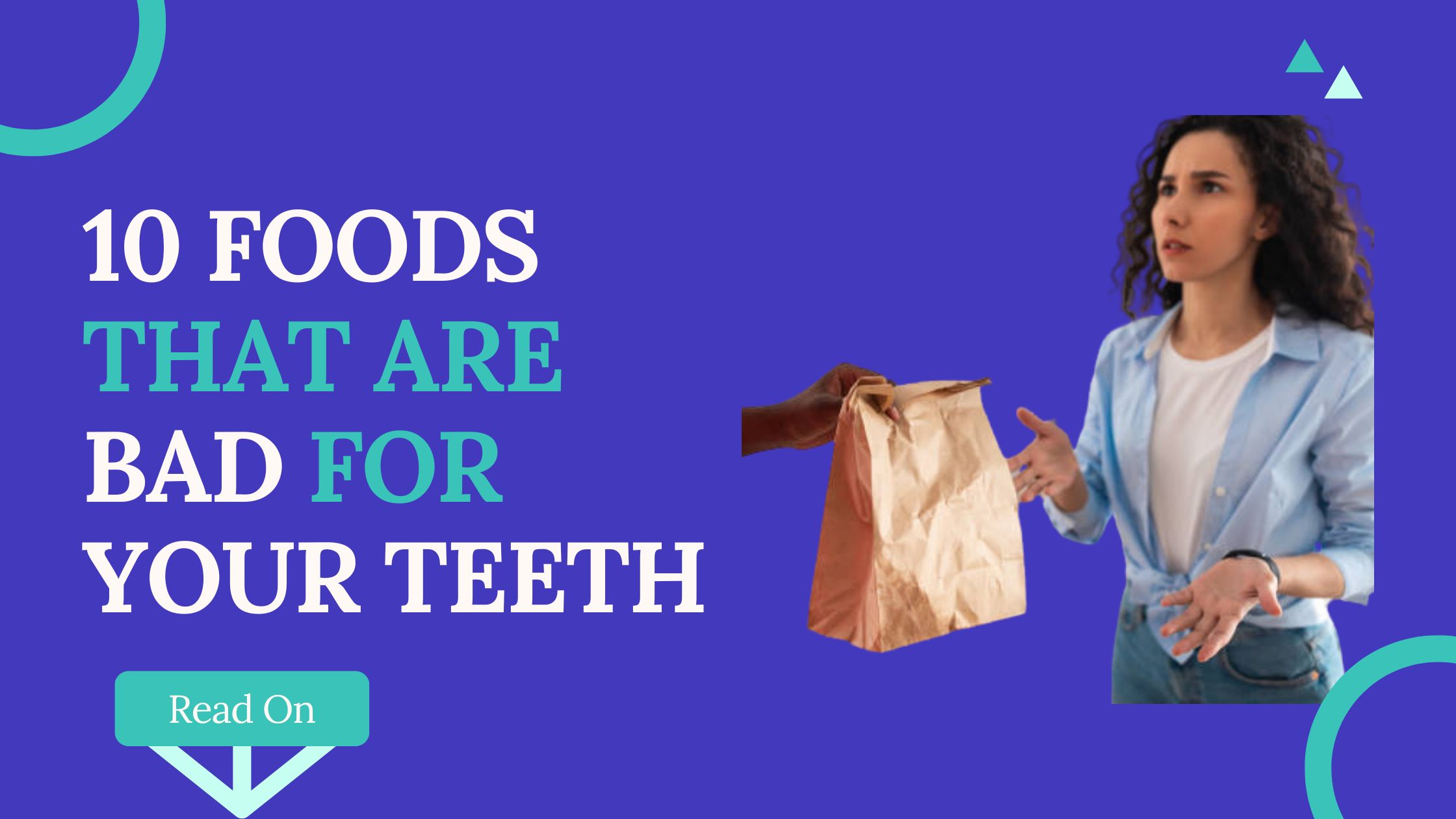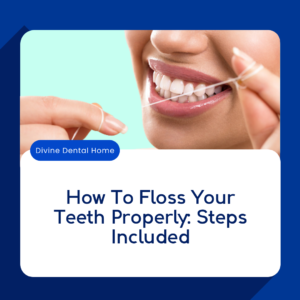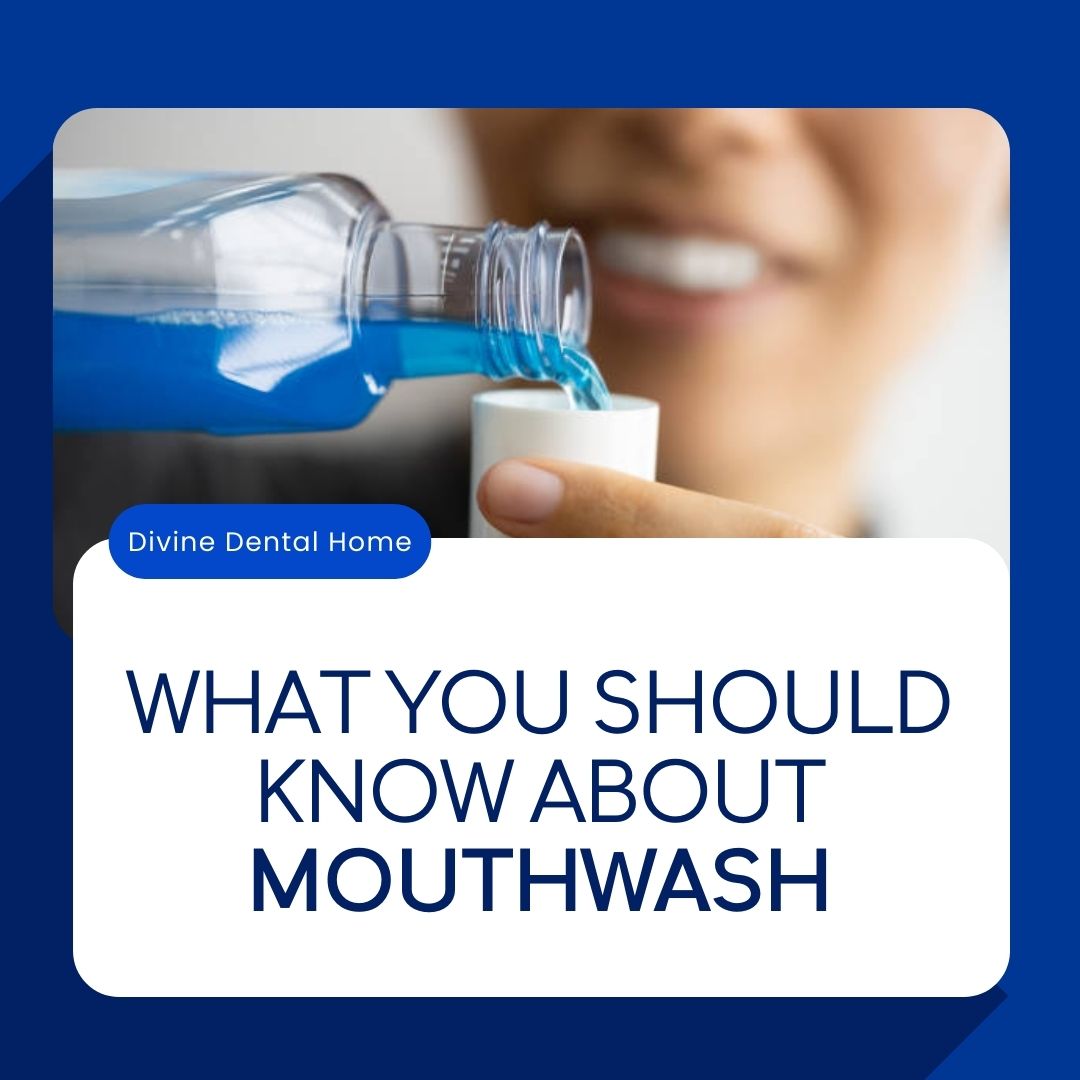Teeth are your first line of defense against harmful germs and bacteria. They play an important role in keeping your mouth healthy, but that doesn’t mean they’re always going to be able to do their job properly. Having a healthy mouth means having strong, clean teeth that are free of plaque and other detrimental microorganisms, as well as the acids they produce. If you have poor oral hygiene, or if you eat foods that are bad for your teeth regularly, your teeth will suffer in no time. In this article, we’ll discuss some of the main reasons why certain foods are bad for your dental health, and outline some tips on how to improve them.
What Are The Main Foods That Are Bad For Your Teeth?
Several foods can cause harm to your teeth. The first, and most obvious, is sugar. For some decades now, sugar has been associated with tooth decay, and for good reason. Consuming sugar in high quantities metabolizes by the bacteria in your mouth, producing a harmful acid called “cavitation.” This acid can erode the enamel on your teeth, resulting in tooth decay and cavities.
Another common culprit is high-sodium foods. Another food chemical that is harmful to your teeth is salt, and it is closely associated with tooth decay. When consumed in large quantities, salt can be very bad for your teeth. The sodium in salt is what causes the damage.
Salt is used as a drying agent, which naturally dries out your mouth, and if your mouth is dry, then there is no saliva to wash away harmful bacteria. Saliva is your teeth’s best friend. It removes bacteria and food particles that have made their way onto the teeth. Without it, you’re more susceptible to harmful bacteria.
Too Much Salt Is Bad For Your Teeth
The following foods that are bad for your teeth are high-salt foods. To warn people against food with high salt levels may seem strange, as salt is required for good health. But when it comes to your teeth, too much salt is not good for them.
When people consumed a high-salt diet, “sodium ions from the salt were drawn into the enamel of the teeth, where they caused damage to the tooth’s organic matrix, the biological material that surrounds the tooth’s minerals.” The result: is a higher risk of tooth decay. This doesn’t mean that you should try to avoid salt at all costs. Rather, it’s important to maintain a healthy balance. The Centers for Disease Control and Prevention recommends that people consume less than 2,300 milligrams of salt daily (about a teaspoon).

Processed Foods Are Bad
Next are processed foods. These types of foods are typically high in sugar and low in essential nutrients, which may cause your teeth to decay and get cavities. If you eat too many processed foods without supplementing them with other beneficial foods, you could be at risk for tooth decay and other dental problems.
It’s also important to note that foods like soda and sweetened tea are considered processed foods, as they are made from other foods that have been processed and altered. Drinks like soda and sweetened tea are typically high in sugar, which can cause cavities and other dental issues. To avoid these problems, you could try drinking water, milk, or unsweetened tea instead.
Refined Grains and starches
Refined grains and starches may harm your teeth. To avoid tooth decay, you should avoid eating foods high in sugar. The CDC says that eating too many sugary foods can increase your risk of dental decay. The American Academy of Oral Medicine recommends that people limit the number of sugary foods they eat. Refined grains and starches are often high in sugar, so you should avoid eating too many of them. It’s also important to note that some foods, such as apples and carrots, naturally have sugar in them. While these foods have sugar in them, they don’t have as much sugar as some of the other foods on this list.
Toppings and Sauces
Toppings and sauces are another food that is bad for your teeth. You should avoid eating foods that are high in sugar. When eating foods that are high in sugar, you run the risk of cavities. Sugar is often used as a topping or sauce on many different types of food. If you eat food that is high in sugar, you could be more likely to get cavities.
It’s also important to note that sugar-free foods and drinks can be just as harmful to your teeth as sugary ones. Many sugar-free foods and drinks contain acids, like aspartame and sorbitol, that can be harmful to your teeth.
Alcoholic Drinks and Frozen Desserts
Next are alcoholic drinks and frozen desserts. Alcoholic beverages, specifically those that are carbonated, can harm your teeth. There are a few different ways that carbonated beverages can harm your teeth. To begin with, the high level of acidity in these drinks can cause the enamel on your teeth to erode. Another reason why carbonated drinks are bad for your teeth is that they contain sugar. Sugar is generally bad for your teeth, as it can increase your risk of cavities.
However, when it is in a liquid, it can be more harmful, as it can be easily absorbed into your system. To be on the safe side, you should avoid drinking carbonated drinks. Frozen desserts, like ice cream and popsicles, can also harm your teeth. Frozen desserts are often high in sugar, which can damage your teeth. If you eat a lot of frozen desserts, you could be more likely to get cavities.
Conclusion
Tooth decay will affect the vast majority of people at some point in their life. While there is no way to completely prevent it, there are ways to slow it down. All it takes is a few adjustments in your diet and oral hygiene routine to get your teeth in tip-top shape. Be sure to avoid eating foods that are bad for your teeth, and you’ll be well on your way to a healthier mouth.
